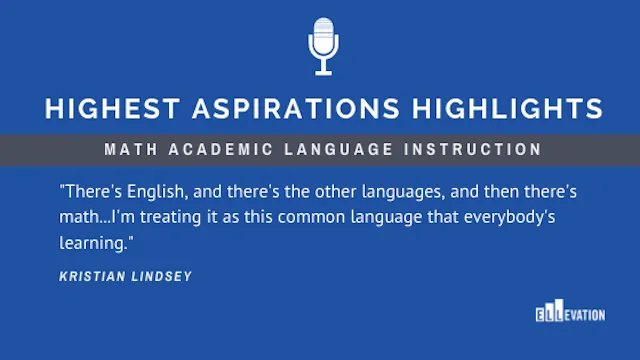Academic Language Instruction: Everyone is a Math Learner with Kristian Lindsey


Academic Language Instruction: Everyone is a Math Learner with Kristian Lindsey
Middle school math teacher and interventionist Kristian Lindsey experiences these challenges first-hand with her linguistically diverse group of students at Lively Middle School in Austin, TX. She shares how she makes math lessons accessible to English learners and demonstrates her approach to teaching academic language.
“Math Took that Word”
Throughout our conversation, Kristian demonstrates several ways in which she teaches math vocabulary as a “common language” for all students. Kristian focuses her language instruction on making connections to math terms: from emphasizing root words that math terms have in common with Spanish words, to highlighting academic vocabulary that students may have heard in a different context.
Virtual Participation
Kristian noticed that remote learning heightened many of her English learners’ hesitation to participate in class. She has found Zoom’s chat feature to be a valuable opportunity for these students to practice language and share their answers without the fear of “getting it wrong” in front of their classmates. Over time, this can build students’ confidence and offer a stepping stone to practice English and math skills with lower stakes.
Relationships First
In order for any academic language techniques to work, students need to be present in the classes. Kristian acknowledges that when students don’t feel confident, they are understandably less likely to log in or show up to class. She believes that a relationships-first approach is key - and wants students to hear the message that it’s okay if you’re behind or confused; all she asks is that students continue to show up. “Teachers are here - we want to help you, we want you to succeed.”
Listen to the whole conversation to hear more about these strategies and Kristian’s predictions for how technology will play a role in a post-COVID classroom.
During our conversation, we mention the following books and resources:
-
7 Steps to a Language Rich Classroom by John Seidlitz
-
Capturing Kids' Hearts for professional training on building relationships
To get access to strategies and resources from experts in multilingual education, join the almost 10,000 educators in our ELL Community - it’s free!